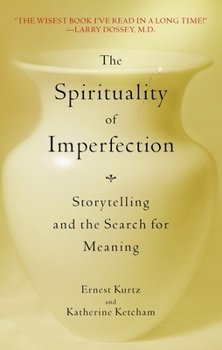Originally published in the Herald-Zeitung, weekend edition, August 24-25, 2024.
Over the years I have conducted workshops on body and psychic woundedness, personal boundaries and the life stories that feed them. While all these topics have been powerful in working with individuals’ personal myths, none has been more intriguing than the topic of ghosts that haunt us. James Hollis’ book, Hauntings, has guided me in this pursuit.
One of the most cited ghosts is imperfection, of not measuring up, of feelings that one is not adequate, of feeling small and insignificant in the world they inhabit.
I ask myself: do these feelings of discontent, of feeling ashamed in their imperfection, originate only in one’s early upbringing? Is this where one becomes attached to a series of habitual self-stories that we tell ourselves in our bewilderment of what our value is?
Is it not also cultural? We can recall dozens of ads shoveled at us daily through many outlets. Their message repeats one major theme: 1. Problem: You are not good enough as you are. 2. Solution: Use our product, service, or program and you will relocate to a more perfect you.
In the political arena rival opponents will seek out the imperfect, the gap, the falling short, the deception that make the other unworthy of leading. Compare them with me, the more perfect candidate, and you will see that. Being infiltrated by ghosts of imperfection is part of the fabric of our personal and cultural lives.
Sociologist Brene Brown’s The Gifts of Imperfection explores our life hauntings, especially the stinging ghost of feeling unseen unheard or valued. Her desire and determination to reclaim her own worthiness, of feeling more than “good enough” led her to search out the dynamics of feeling inadequate and falling short.
She learned that “perfection is an unattainable goal,” but that does not deter many from seeking it out. The consequences most often feel like signing on board a treadmill of terminal imperfection with no “off” switch.
In The Spirituality of Imperfection: Storytelling and the Search for Meaning, Ernest Kurtz and Katherine Ketcham deploy the wisdom of 12-step recovery programs. One key insight is that “spirituality involves first seeing ourselves truly, as the paradoxical and imperfect beings we are. . .”.
They refer to us as “paradoxical” because it is “only within our very imperfection that we can find peace and serenity available to us.”
When workshop participants write of this all-pervasive ghost of imperfection, then share it with others, they often comment on how healing it was to “go public,” with their ghosts of not feeling good enough ever since they were judged harshly by a parent or other authority.
Often individuals realize that in simply naming it, then claiming it through sharing with others struggling like them, they are able to begin forgiving themselves for the self-taunting inflicted on themselves, sometimes for years or decades. All share one belief: the process is as spiritual as any other life dimension.
I have recognized over time that participants are not seeking a quick fix or cure; rather, they seek being cared for, and the most important person in their lives to express this care is themselves.
They are no longer tethered to live a discounted life, as when we say of someone: “Simply discount what X has said or written.” Total dismissal.
It is a powerful moment when an individual realizes they have an inner authority to revise their narratives into plots of self-acceptance, not self-perfection.
Self-forgiveness becomes a positive antibody to neutralize self-shaming. They can choose to retire the ghost that escorted them to this changed image of who they are.
